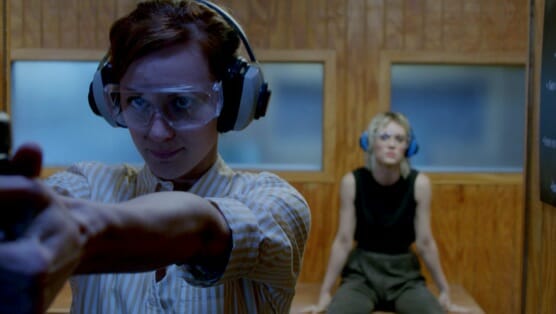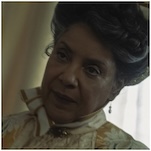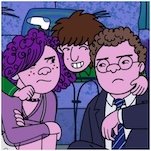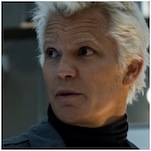Halt & Catch Fire: “Kali”
(Episode 2.09)

Within the first few scenes of its second season, it became readily apparent that Halt & Catch Fire had evolved into a much cleaner, more impactful series. And while this season has not been without its occasional missteps (i.e. Gordon’s California indiscretions) even these supposed bumps have been in service of a greater arc (i.e. Gordon’s gradual psychological collapse). “Kali” serves as the ultimate culmination of many of the series’ budding plotlines, delivering the show’s best episode to date and one of 2015’s absolute best hours.
As the episode opens, Mutiny is in dire straits. With Community gone, Cameron devises a last ditch effort to save the company by selling off its most recent game, Extract & Defend, to a company for cartridge development. Eventually, after a string of cold calls, and some sweet-talking from Bosworth, Mutiny lands a meeting with a company that agrees to pony up $50,000 to develop Extract & Defend into a game (I thought I saw a Nintendo controller somewhere there, so I’m assuming that’s where it’s going). Mutiny is, for all intents and purposes, saved.
The company’s salvation, however, appears to come at a great cost to Cameron’s own happiness. In the process of righting the ship, she all but disconnects herself from Tom, saying that the main reason they’re in this situation was because she lost focus and allowed herself to become complacent. Besides being blatantly self-delusional, this evaluation is further undermined by the events of the episode, which clearly show how Mutiny was a team effort. After all, it was Bosworth’s aforementioned slick business savvy that convinced the head honchos about the advantages of boasting an American-made game. Later, Cameron realizes the only reason she even got the meeting in the first place was because Tom used his connections to secure it. What’s more, even Cameron’s admittedly badass “victory” against Joe carries seriously questionable connotations.
So, let’s talk about that “victory” for the moment. The event comes about as a bait-and-switch. In what marks their first encounter since Joe’s ill-advised, drug-fueled visit to the Mutiny house following the WestNet reveal, Cameron initially comes across as unusually sympathetic. She believes that Joe had nothing to do with the WestNet debacle and even goes so far as to try and seduce him. Joe rightfully rebukes her advances. She promptly departs but not before giving him a floppy disc containing what Mutiny’s interface would have been. Joe inserts the disc into the Westgroup computer and admires Cameron’s handiwork, in particular the sentimental note that she embedded in the design.
-

-

-

-

-

-

-

-

-

-

-

-

-

-

-

-

-

-

-

-

-

-

-

-

-

-

-

-

-

-

-

-

-

-

-

-

-

-

-

-








































